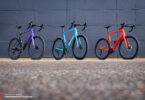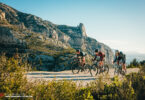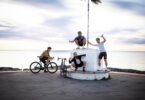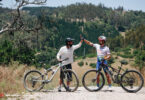1,145 km through Morocco’s Atlas Mountains in 6 days: The PEdAL ED Atlas Mountain Race has left its mark on Team Terrible Heaven, the dust still in the carpet of Marc und Alex’s living room. Read on for the personal account of the team’s rude introduction to the world of ultra-endurance racing.
There we are, with bikes that look like battle machines straight out of Mad Max, rubbing shoulders with ultra-endurance athletes and heroes of the endurance scene. We don’t see any ripped calves or super trained bodies and the occasional start gate cigarette hints at the fact that the cycling part of the race will play a rather subordinate role. Let’s take a step back: what is Terrible Heaven? Who is it? Marc Lehman and I, Alexander Bethge are Terrible Heaven, a neologism coined from the names of our respective bike projects at home. Deeply rooted in the Stuttgart bike scene, fascinated and attracted by the adventures of ultra-endurance cycling events. The PEdAL ED Atlas Mountain Race was the first opportunity for us to dive into this kind of racing format. With an easy-to-reach start location, covering almost 1,150 km and 20,000 m elevation gain, the window of opportunity for us to face a challenge such as this between the calling of job and family duties had never been better.
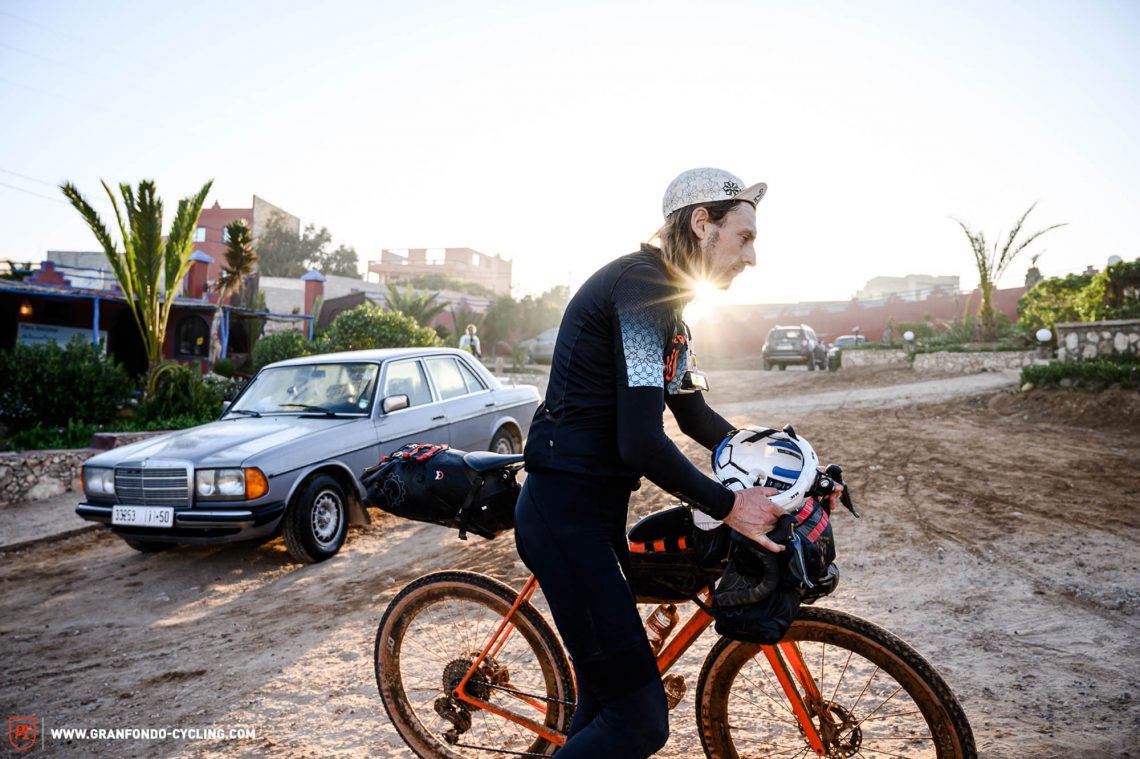
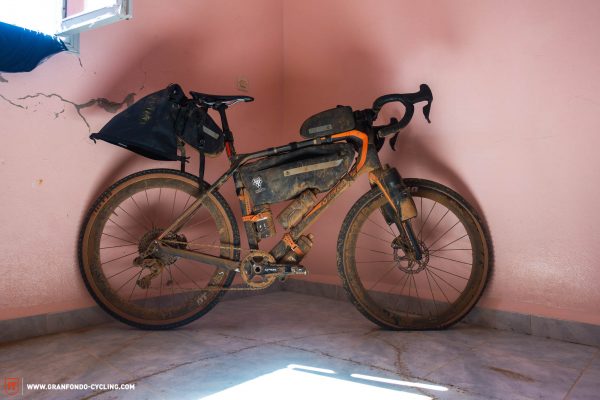
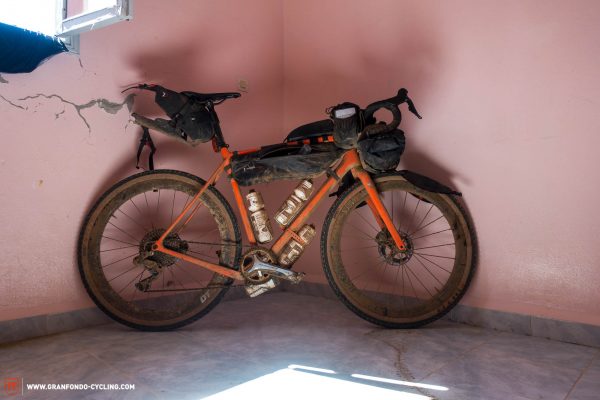
The scene of the night before is like a family reunion, hugging familiar faces and Instagram acquaintances becoming real-world friends. We do one final equipment check to calm our nerves and then we realise that we’re about to take on our first real attempt at navigating a fully loaded bike through rough terrain. Shit – bikepacking experience, zero!
Saturday 9:00 am: Nelson Trees, race director and organiser of the Silk Road Race, lets the dogs off the leash. Escorted by the Moroccan police, we leave the hustle and bustle of the medina, out of Marrakech and headed towards the Atlas Mountains at full speed. With our team kit and bikes coordinated down to the last detail, we almost look like a couple of parrots amongst the peloton of endurance freaks. I dive into the slipstream and look for a back wheel to follow, fully back in race mode. The cries of veteran Jay Petervary immediately make it clear that riding slipstream isn’t allowed. Not to get into trouble, Jay whips it into high gear and pedals away on the left side of the road like a plough horse. Shortly afterwards the rodeo starts and my oversized food bag drags on the front wheel. Take a break, catch your breath, calm down, fix the bag – welcome to the Atlas Mountain Race.
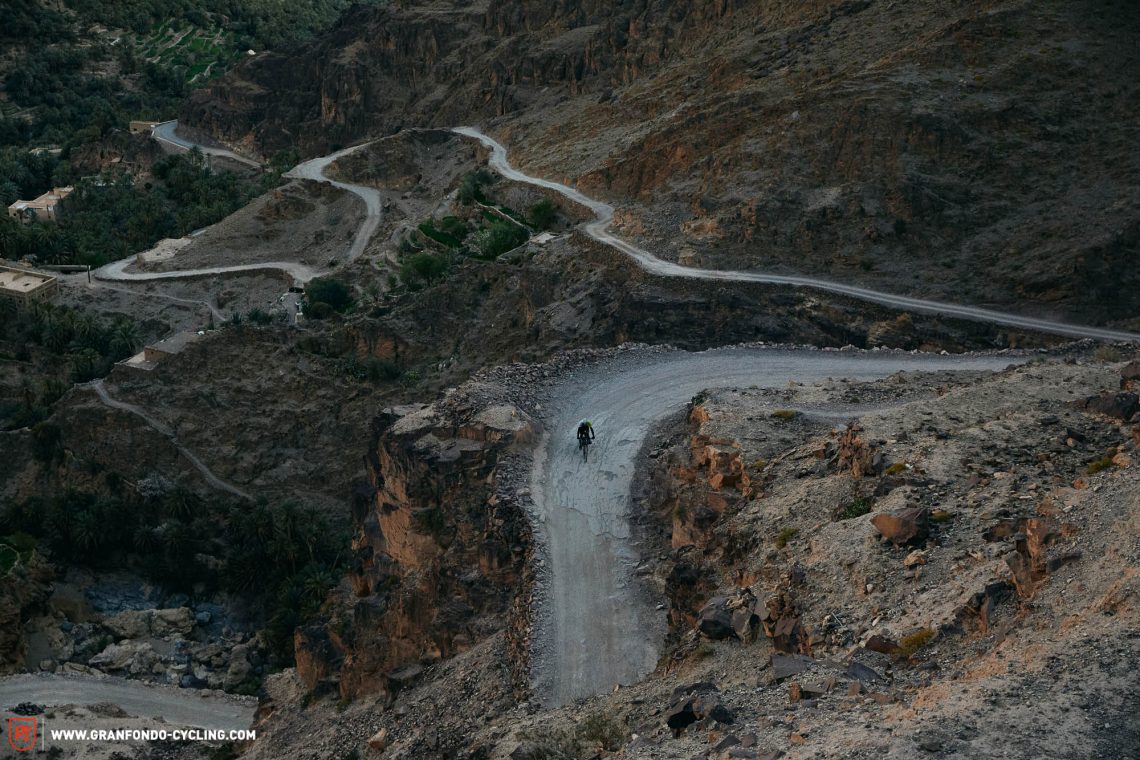
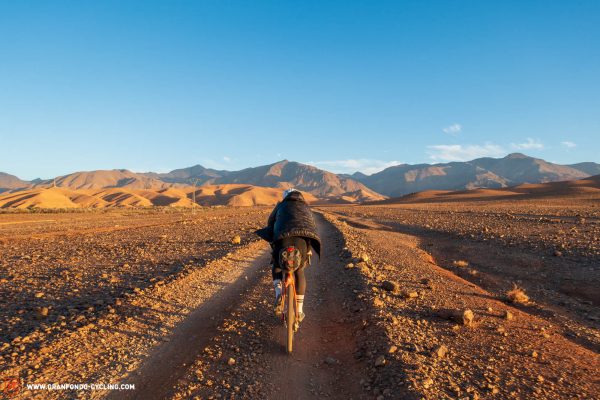
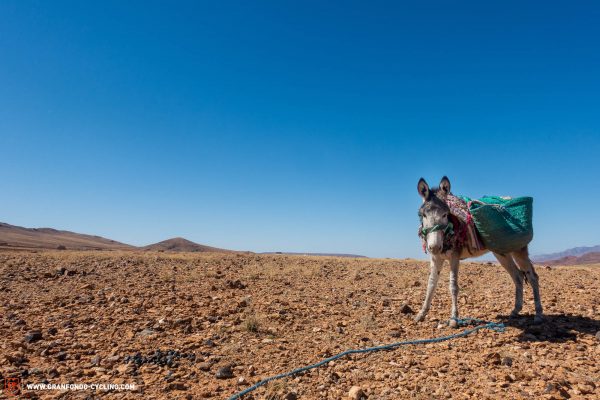
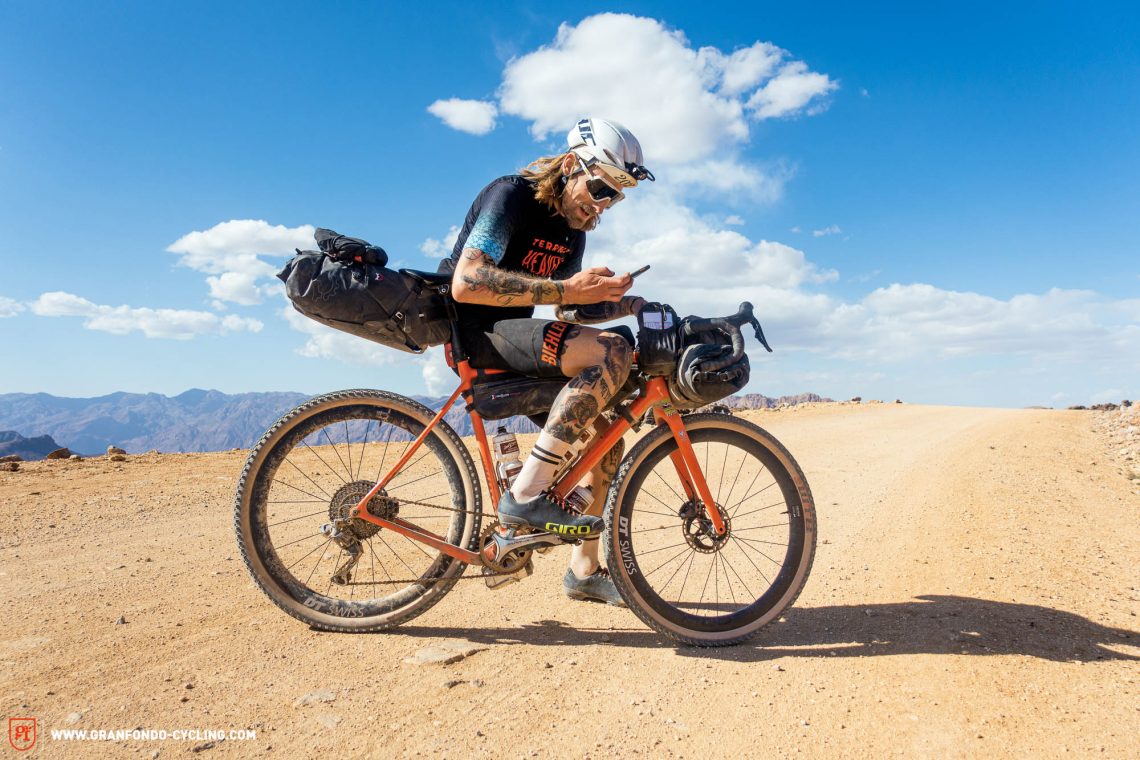
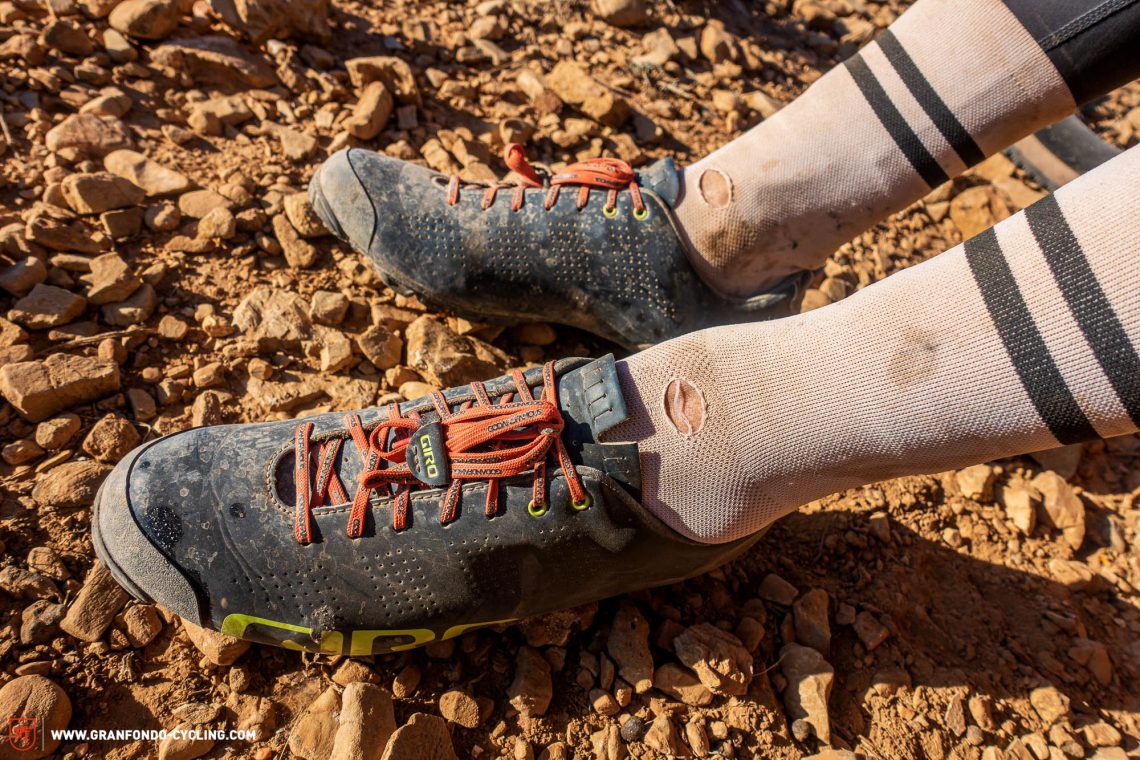
The first stage already has us a climb to the highest point of the race. We’re able to keep up with the leading teams and wind our way up to 2,500 m. The cul-de-sac at the summit and the subsequent two-hour hike-a-bike passage quickly makes clear the kind of treats Nelson has prepared for us.
We reach checkpoint 1 at the same time as Federico Damiani and Andrea Galanti, the winning team. The boys just keep going as we treat ourselves to a tagine and head out into the darkness with our spirits high. Following the small tunnel of light created by our lamp, the track keeps on getting rougher and when we pass Ernie and Scotti Lechuga (winning team of the Silk Road Race 2019), they call us crazy for sharing a single light. But, extending battery life comes first – German efficiency. The non-compliance of the rocks forcibly reduces the pressure in our tires and the subsequent valve failure puts our teamwork capabilities to the test. My reserve valve? It’s too short, of course! The issue is soon resolved with the right valve from Marc.
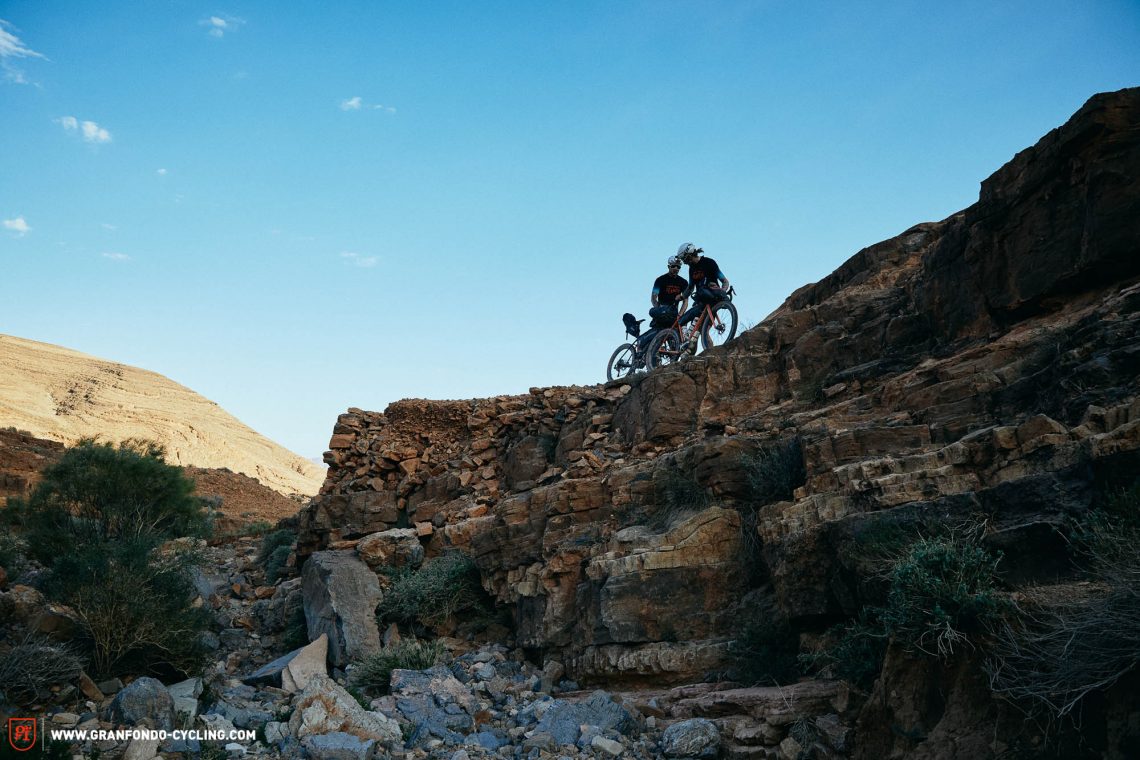
The barren beauty of the ever-changing rock formations continues to impress us anew. Endless stone desert landscapes alternate with steep cliffs into which paths have been painstakingly carved. It’s the morning hours, after dragging ourselves out of our bivi bags, that are the race highlight, easily overshadowing all the negatives. That special morning light lets the Atlas mountains glow in their full splendour. This is the best compensation for the hours of merciless hammering we have to endure – you can imagine it like a bar fight where you’re hopelessly outnumbered and even your bike gets kicked to pieces as you try to flee. We’re all the happier for a chance to rest our beaten bodies on a real mattress from time to time in an auberge. Now and again we curse ourselves for choosing to ride gravel bikes. 650B+ adventure bikes hop and skip by, making us look like old, arthritic men. Our time comes as soon as we hit asphalt, but even in a time trial position, we’re hardly able to ride faster than 20 km/h.
The dynamics of a normal bike race don’t exist here. In general, the cycling aspect is only one of many components that will get you to the finish line. The need for sleep, the ability to relax, the supply of water and high-quality food (Berber omelettes) and above all the ability and willingness to endure pain become bigger factors than we previously assumed. We quickly realise that as novices the only thing we’re good at is riding our bikes and we have to learn everything else as we go.
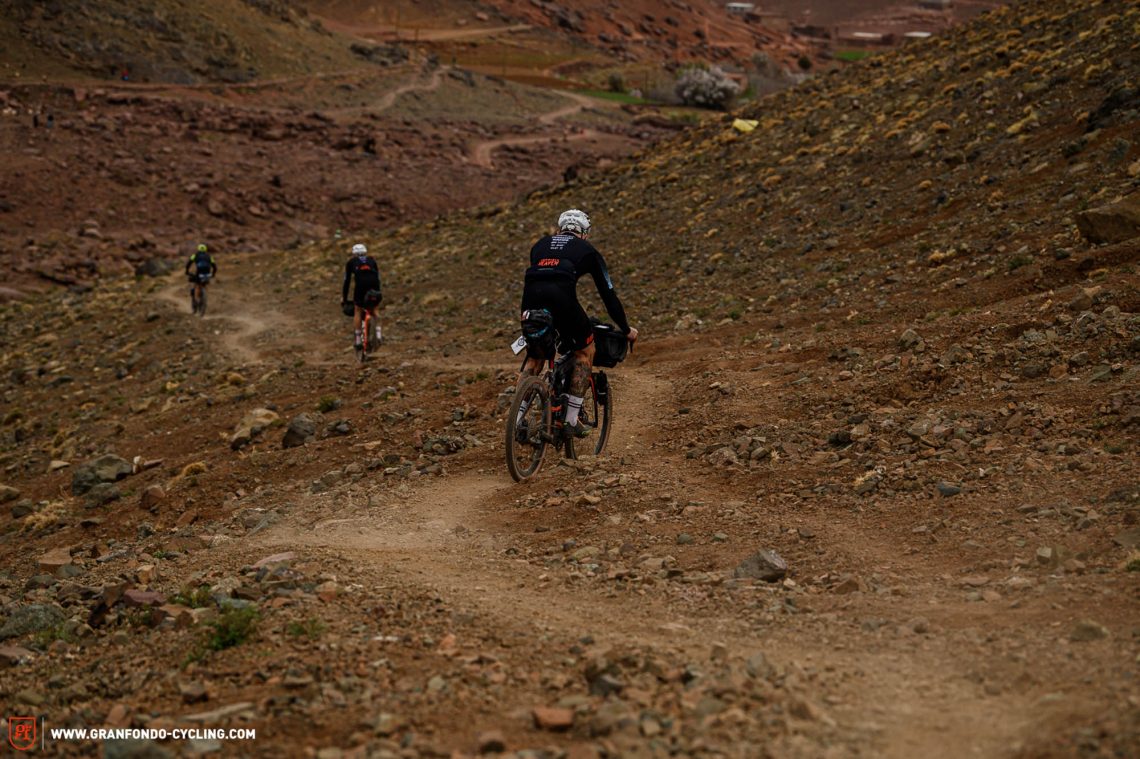
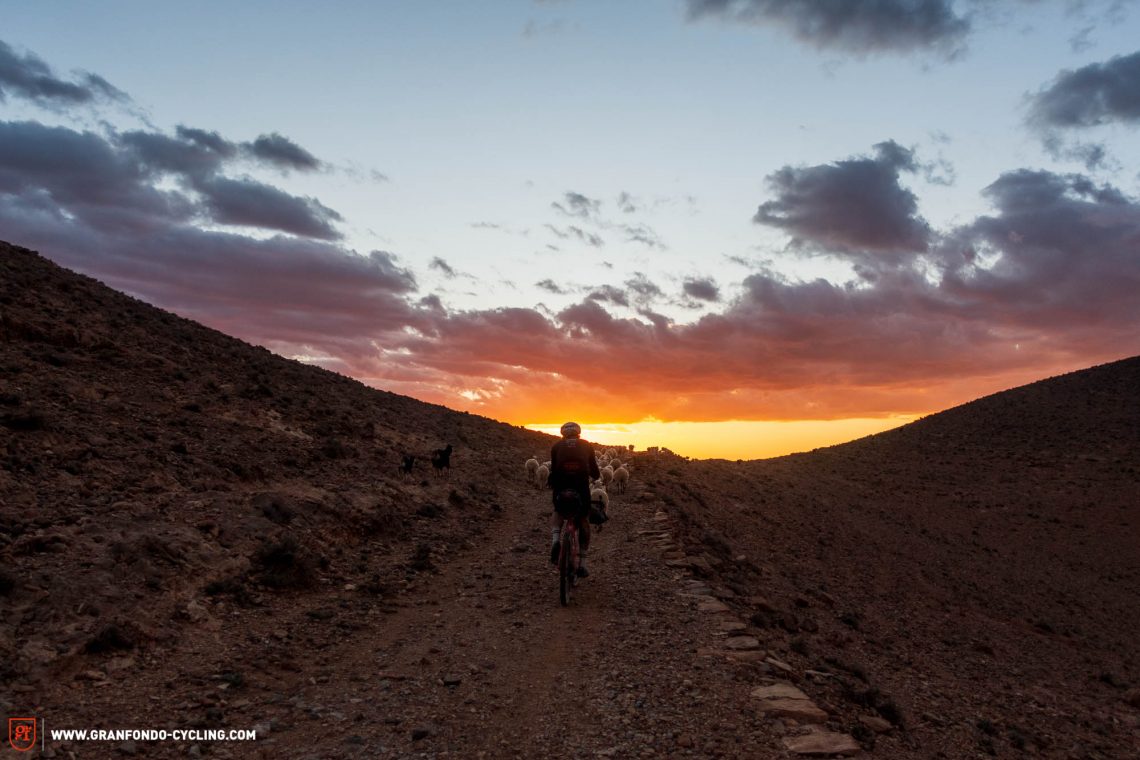
Simply following the route, we’re often sent into long, meditative states of concentration. We ask ourselves what we’ve been thinking about for the past few hours but we don’t have an answer. Not to fall off the bike, not to slide out and to stay on the rear wheel of our team partner keeps us completely in the present moment. Is this the zen state that everyone in our overstrung society is chasing? At night, the darkness swallows everything around us. We’re in the tunnel, which occasionally leads us straight into hell and we’re always happy to be spat back out the other end with our bodies intact. The fact that our team name Terrible Heaven would describe this race so well almost seems grotesque, it couldn’t have been more appropriate.
We decide to push on through the final stage. We have 300 km left and after our last stop we decide to ride into the night and keep on going until our legs give out. The asphalt sections almost make us feel euphoric and we make good progress. When we see the first riders start bedding down for the night, lying next to the road in their bivi bags, we feel motivated to keep going. We ride until we reach the point of no return and setting up camp no longer is an option for us. If Nelson Trees had designed an apocalyptic arcade game, we would at this stage definitely have reached the advanced levels. The night continuously revealing new levels of horror. As we lock eyes with 5 wild boars, our perception between dream and reality blurs. Next turn, new luck. What else does Nelson have in store for us? Sections of loose sand to stop the wheels from turning entirely, interspersed with hedges of cacti, testing the limits of our tires. Fog rises up and we get completely lost in it; the smell of garbage dumps and aggressive dogs welcome us to the apocalypse. But we’re fully away that haven’t yet beaten the main opponent and our ragged nerves aren’t spared even on the last stretch of asphalt. We fear for our lives as buses thunder past us in the dense fog at over 100 km/h.
The clock ticks down mercilessly but we realise we have a chance of finishing in under 6 days as we turn down the final stretch, a 6 km passage of sand. We can’t believe it, this is meant to be the home stretch? In our heads, we pictured ourselves coasting victoriously down to the sea. Instead, we take it on with Mathieu van der Poel and put our CX skills to the test. Pushing, running, sprinting: we give it everything we’ve got and we reach the finish line after 5 days 23 hours and 45 minutes.
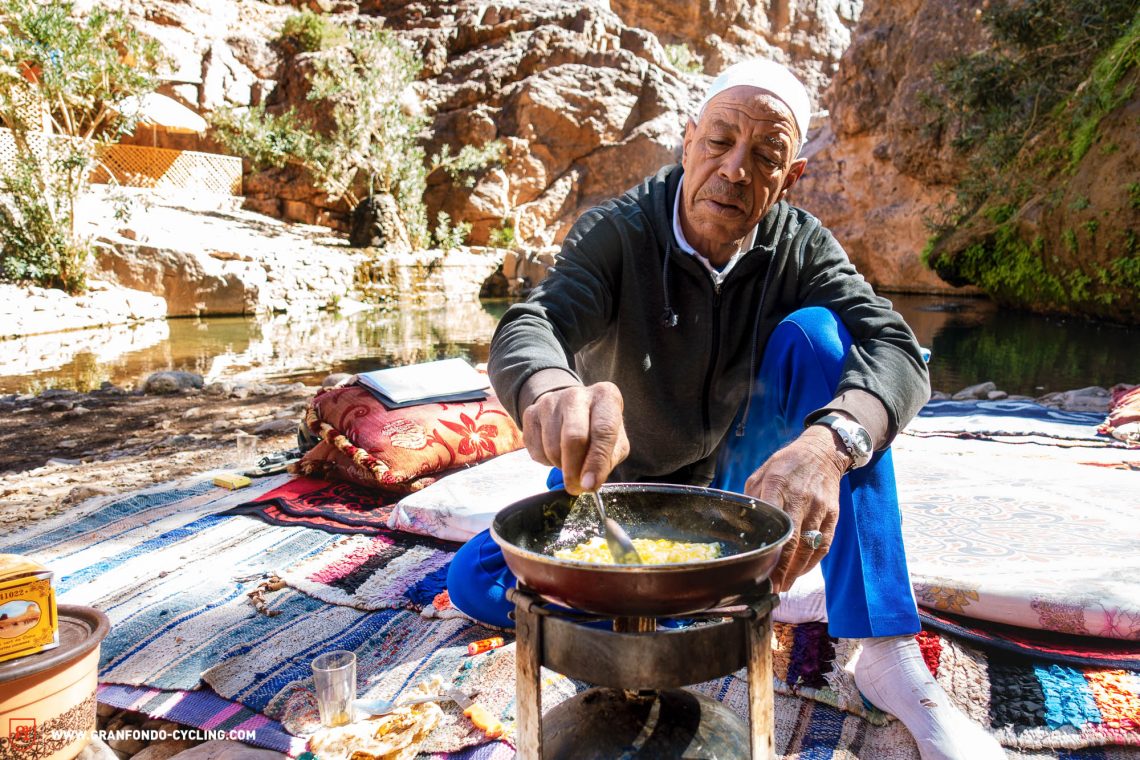
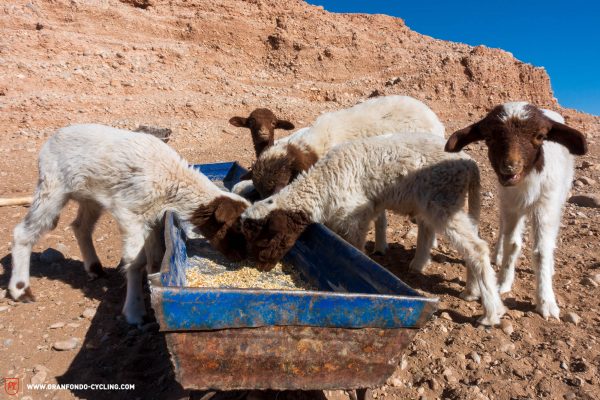
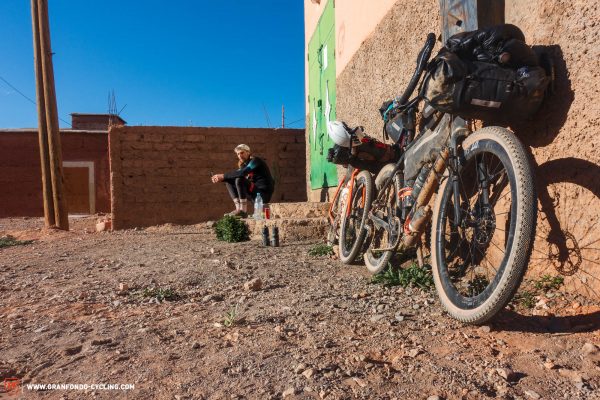
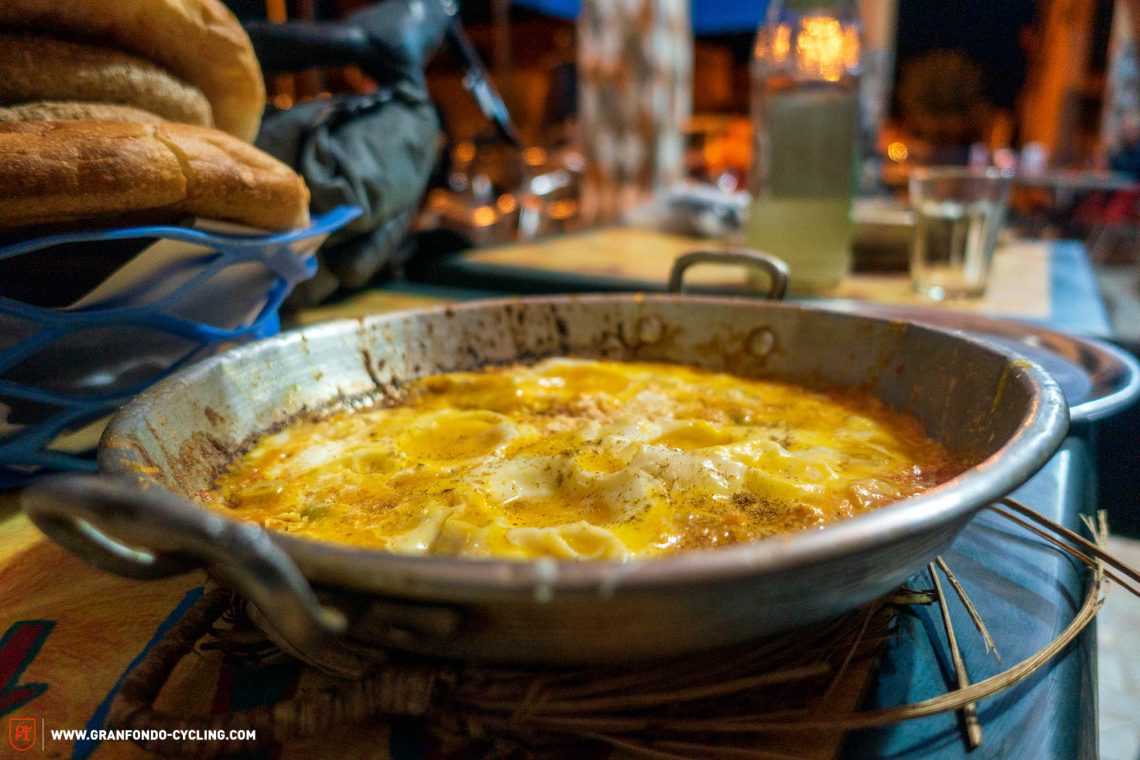
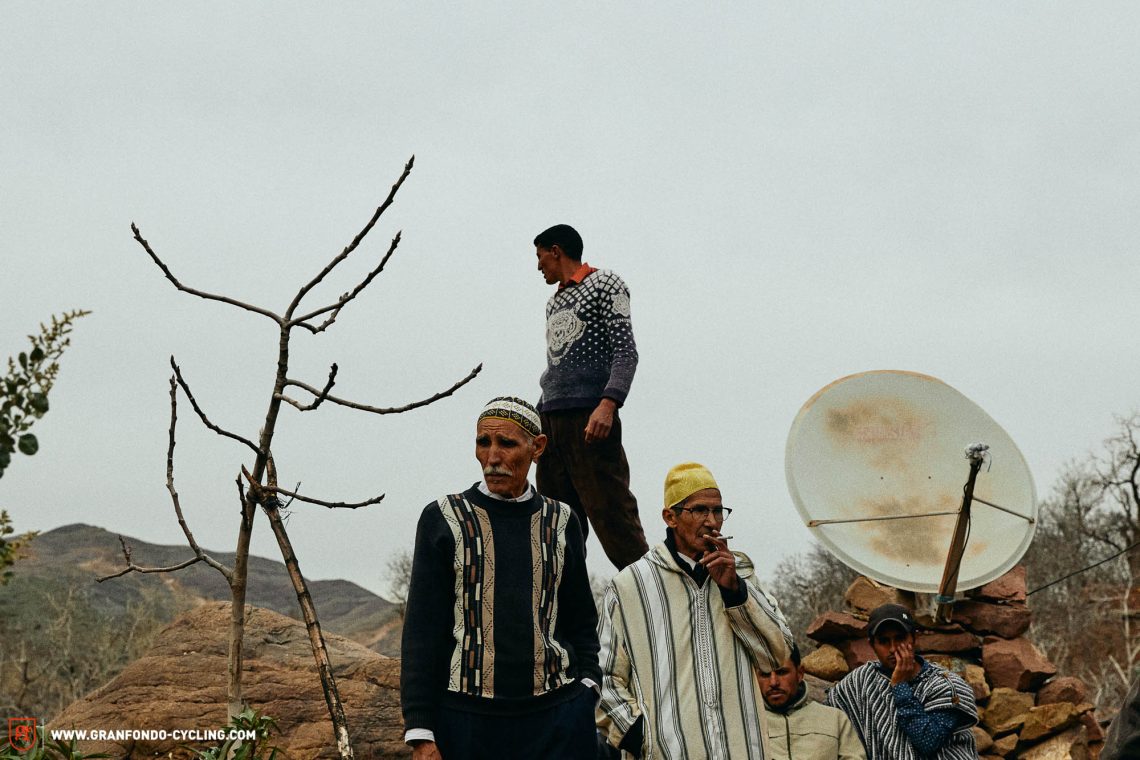
The emotional roller coaster is indescribable, ranging from total emptiness to the joy of having reached the finish line in one piece to the anger at being delivered one final blow when we were already completely broken. After 27 hours on the bike, non-stop, we collapse and regain consciousness 4 hours later in our sleeping bags. The fact that we could keep the pedals going for so long was a completely new experience. The human body is a miracle.
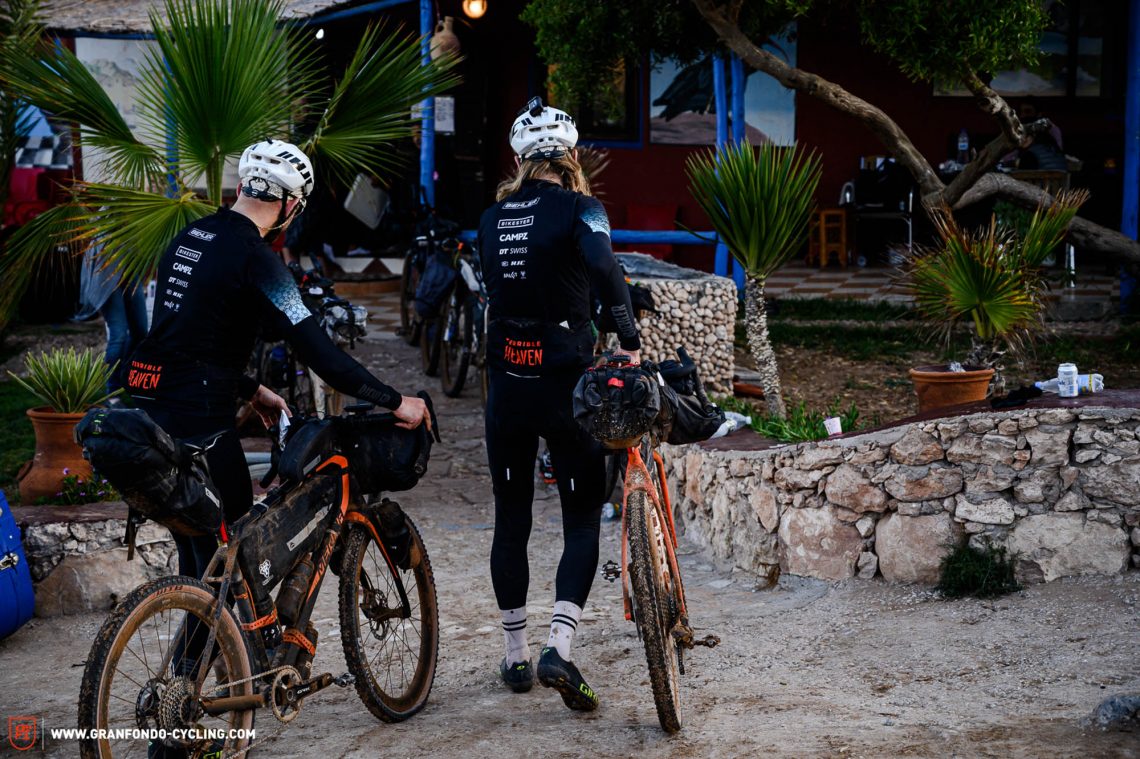
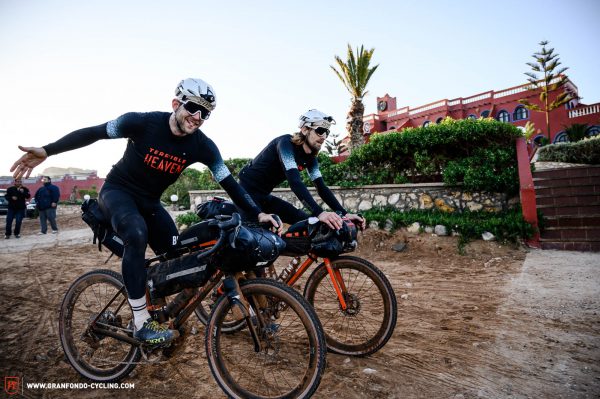
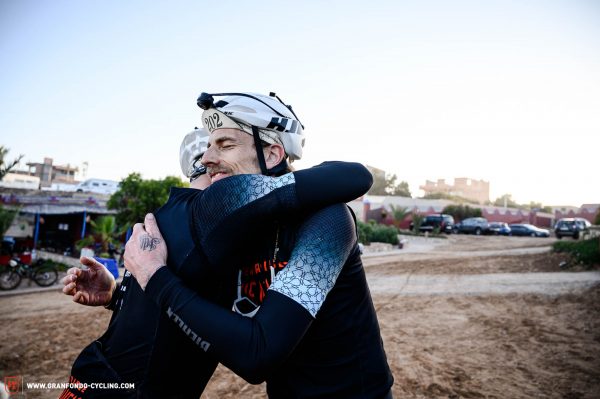
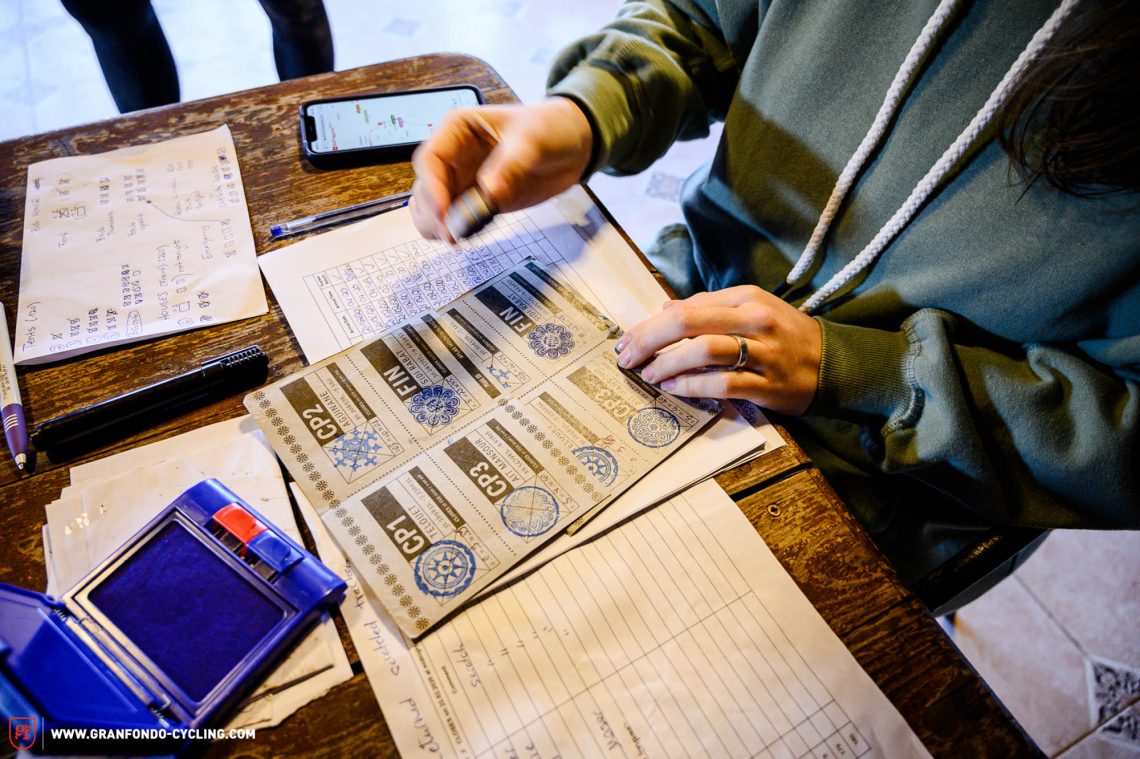
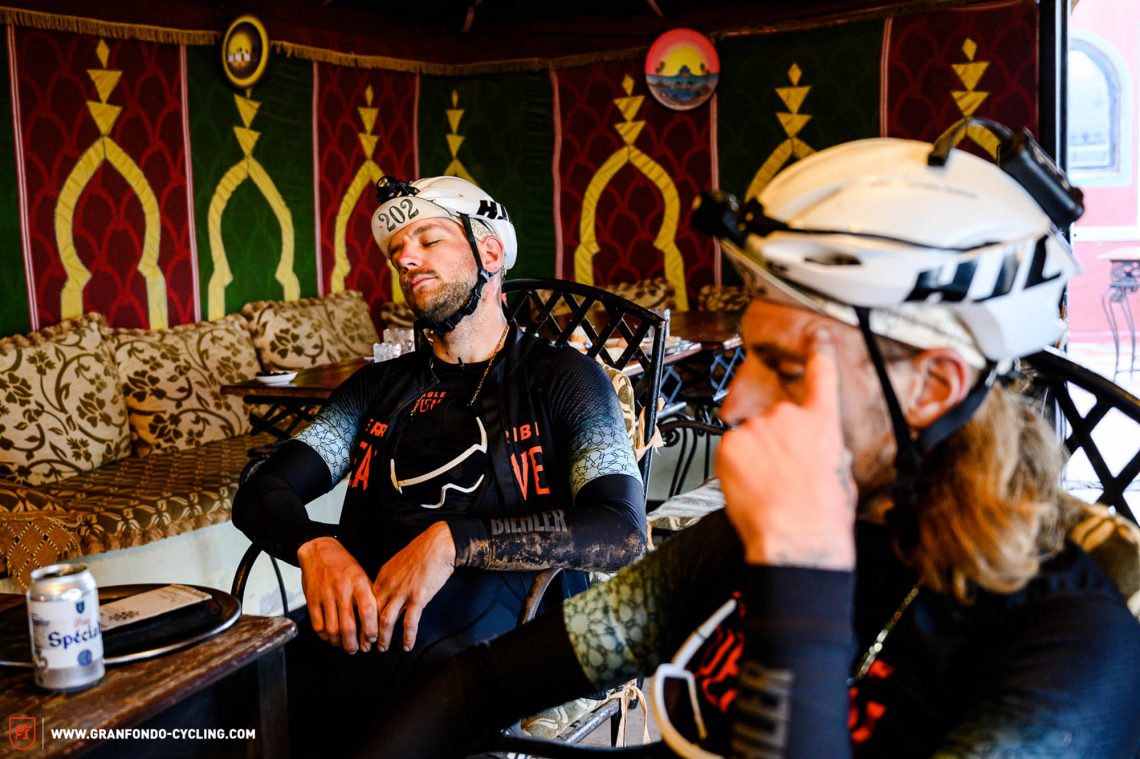
As an introduction into the ultra-endurance race scene, the Atlas Mountain Race certainly turned out to be a plunge in the deep end. But, enriched with plenty of new experiences, praise from scene’s greats and the satisfaction of not having been brought to our knees, we were able to make our way back home to good old Stuttgart. Ali and his 45-year-old Benz turned out to be the final adventure on our way to the airport. With that easygoing Moroccan attitude, he ties our € 7,000 bikes to the roof of his taxi with a piece of string.
Nelson Trees and his team really delivered with the first edition of the Atlas Mountain Race. Of over 190 contestants, only 130 riders were able to reach the finish line in Sidi Rabat. Whether team Terrible Heaven will come back next year to settle their differences is still up for debate. First, it’s time to let our wounds heal and enjoy the Swabian winter.
For more information about the PEdAL ED Atlas Mountain Race head over to pedaled.com
Did you enjoy this article? If so, we would be stoked if you decide to support us with a monthly contribution. By becoming a supporter of GRAN FONDO, you will help secure a sustainable future for high-quality cycling journalism. Click here to learn more.
Words: Alexander Bethge Photos: Jonathan Hines, Marc Lehmann, Nils Laengner



